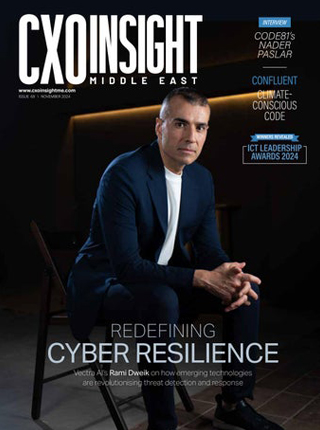As International Fraud Awareness Week unfolds, a global survey by SAS highlights the growing threat of fraud and the readiness of organisations and individuals to combat it. Among the 13,500 people surveyed for SAS’ 2023 Faces of Fraud study, 70% reported falling victim to fraud at least once, and nearly 40% experienced fraud two or more times.
The survey also reveals stark contrasts in regional attitudes toward fraud. In the UAE, 83% of respondents expressed significant fear of falling prey to fraud – among the highest globally – while in Brazil, this figure climbs to 94%. In contrast, only 53% of respondents in the Netherlands report similar concerns.
Additionally, 82% of UAE respondents indicated willingness to share more personal data digitally, such as location information, to enhance their protection against fraud. This reflects a broader trend in countries like Brazil and South Africa, where 84% and 82%, respectively, reported similar willingness. Just 12% of all respondents said they aren’t willing to share data at all, but in the Netherlands and France, this figure is higher at just shy of 20%.
“As Middle East markets continue to evolve, grow, and become highly digitalised throughout the customer journey, we see the imperative for businesses to integrate advanced fraud prevention mechanisms to safeguard both their operations and their clients,” said Grozdana Maric, Head of Fraud & Security Intelligence, EMEA Emerging and Asia Pacific at SAS.
AI vs. AI: Using Advanced Tech to Outmanoeuvre Fraudsters
As generative AI continues to reshape the fraud and financial crime landscape, how can anti-fraud pros best position their organisations to foil spiralling criminal exploits? Join SAS and the ACFE for a Fraud Week webinar – open for the first time to ACFE members and non-members alike – where experts will discuss the evolution of GenAI and its growing role in fraud prevention and detection.
“Banks, government agencies, insurers, merchants and other businesses continue to modernise with apps and digital offerings to match public demand – and in parallel, criminals are finding and exploiting weaknesses using increasingly sophisticated tools, particularly generative AI,” said Stu Bradley, Senior Vice President of Risk, Fraud and Compliance Solutions at SAS. “But as our customers are proving with their many fraud-fighting successes, even in this climate, establishing robust data ecosystems of digital data points and effective use of composite AI – AI aligned to a specific use case – can help organisations agilely adapt to evolving threats.”
Predicting real-time payment fraud with real-time analytics
The UAE is at the forefront of digital payments adoption, with the country experiencing a surge in contactless and online transactions. This shift aligns with the UAE Central Bank’s Vision 2031, which emphasizes fostering a secure and innovative financial ecosystem. However, the growing digital economy also presents challenges, as financial institutions must process transactions in mere milliseconds – a task critical to preventing fraud.
Global data leader SAS equips organisations with real-time analytics to meet this challenge. For instance, digital payments provider Nets, serving over 740,000 merchant outlets, leverages SAS’ fraud management technology to predict and prevent fraud during millions of daily transactions. Similarly, UAE banks can deploy such AI-powered solutions to ensure secure and seamless payment experiences while maintaining consumer trust.
Detecting fraud within seconds with real-time data monitoring
In the UAE’s digital banking landscape, fraud detection remains a top priority, with initiatives such as the UAE Central Bank’s Consumer Protection Framework emphasizing the safety of financial services. As digital platforms become integral to banking, institutions face increasing threats from sophisticated fraud attempts.
In Vietnam, Techcombank, one of the country’s leading banks, showcases the impact of proactive fraud prevention strategies. By implementing SAS’ enterprise fraud solution, the bank reduced fraud detection time to mere seconds while ensuring accuracy across channels – a move that banks across the UAE could adopt to bolster fraud defenses
“With SAS, we consolidated our fraud detection and investigation while also assigning data authorisation to the right specialists. We now act faster, more effectively and more precisely in our information sharing, reporting, business rule writing, triggering alerts and investigation,” said Joseph Vu, Director of Technology and Digital Risk Management at Techcombank.
Uncovering noncompliance, tax avoidance and tax evasion
Noncompliance, tax avoidance and tax evasion cost governments about 10% to 20% of anticipated annual revenue – and in countries where enforcement is lax, those rates can be as high as 80%. Fixing the problem could yield millions in additional revenue. Using SAS solutions on SAS Viya, organisations across the UAE can analyse real-time data, allowing for more effective monitoring and more timely interventions.










Discussion about this post